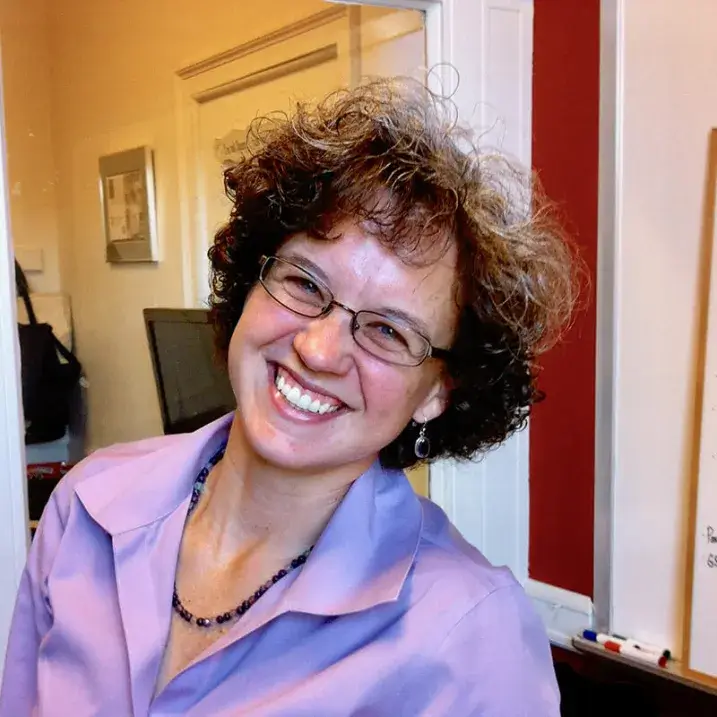85 South Prospect St
532 Waterman
Burlington, VT 05401
United States
- Ph.D. in Curriculum and Instruction from University of Washington, Seattle
- M.S. in Applied Mathematics from University of Washington, Seattle
- M.S. in Mathematics from University of Massachusetts, Lowell
Areas of expertise
- STEM (Science, Technology, Engineering, and Mathematics)
- Computational Thinking
- Teacher Education
- Leadership
- Curriculum and Instruction
BIO
As a STEM educator, Dr. Neumann strives to transform teaching to eliminate long-standing disparities in mathematics performance and in access to classroom technological innovations. She believes it is essential to develop mathematics teachers who have a deep understanding of mathematical content and pedagogical content knowledge to enhance student learning. She also seeks to help teachers effectively incorporate technological innovations across disciplines in K-12 classrooms.
As a researcher in mathematics and technological education, she is interested in how the act of changing one's instruction (i.e., teaching, curriculum, and assessment) manifests itself in the classroom and schools. This line of research can be seen in the following published work:
- Teaching Computational Thinking: An Integrative Approach for Middle and High School Learning
- TPACKing: A constructivist framing of TPACK to analyze teachers' construction of knowledge
- Mathematics teaching: Listening, probing, interpreting, and responding to children's thinking
- Resisting cultural expectations: Women remaining as civil and environmental engineering majors.
A 2025 Fulbright Global Scholar Award enabled Dr. Neumann to explore how teacher educators leverage Computational Thinking and Generative Artificial Intelligence as effective technological tools and skills to enhance teachers’ pedagogical acts and students’ learning in schools.
Dr. Neumann's program received a CESS Innovation Grant for our research on Licensure Portfolio Innovation. This grant allowed the Elementary Education faculty to study the effects of stress on students completing licensure portfolio. As a result of the data collected, the program made significant changes to the licensure portfolio documentation and experience.
She is also part of a team that secured an National Science Foundation grant for curricular changes in STEM titled "Learning Map Framework to Align Instruction and Improve Student Learning in STEM Course Sequences".
Courses
- Introduction to Qualitative Research
- Teaching Mathematics for Meaning
- Learning Theory, Instructional Design & Technology
- Student Teaching Internship
- Dissertation Writing
Publications
Awards and Achievements
2025 Fulbright Global Scholar Award to Canada, Germany, and New Zealand
Bio
As a STEM educator, Dr. Neumann strives to transform teaching to eliminate long-standing disparities in mathematics performance and in access to classroom technological innovations. She believes it is essential to develop mathematics teachers who have a deep understanding of mathematical content and pedagogical content knowledge to enhance student learning. She also seeks to help teachers effectively incorporate technological innovations across disciplines in K-12 classrooms.
As a researcher in mathematics and technological education, she is interested in how the act of changing one's instruction (i.e., teaching, curriculum, and assessment) manifests itself in the classroom and schools. This line of research can be seen in the following published work:
- Teaching Computational Thinking: An Integrative Approach for Middle and High School Learning
- TPACKing: A constructivist framing of TPACK to analyze teachers' construction of knowledge
- Mathematics teaching: Listening, probing, interpreting, and responding to children's thinking
- Resisting cultural expectations: Women remaining as civil and environmental engineering majors.
A 2025 Fulbright Global Scholar Award enabled Dr. Neumann to explore how teacher educators leverage Computational Thinking and Generative Artificial Intelligence as effective technological tools and skills to enhance teachers’ pedagogical acts and students’ learning in schools.
Dr. Neumann's program received a CESS Innovation Grant for our research on Licensure Portfolio Innovation. This grant allowed the Elementary Education faculty to study the effects of stress on students completing licensure portfolio. As a result of the data collected, the program made significant changes to the licensure portfolio documentation and experience.
She is also part of a team that secured an National Science Foundation grant for curricular changes in STEM titled "Learning Map Framework to Align Instruction and Improve Student Learning in STEM Course Sequences".
Courses
- Introduction to Qualitative Research
- Teaching Mathematics for Meaning
- Learning Theory, Instructional Design & Technology
- Student Teaching Internship
- Dissertation Writing
Publications
Awards and Achievements
2025 Fulbright Global Scholar Award to Canada, Germany, and New Zealand
